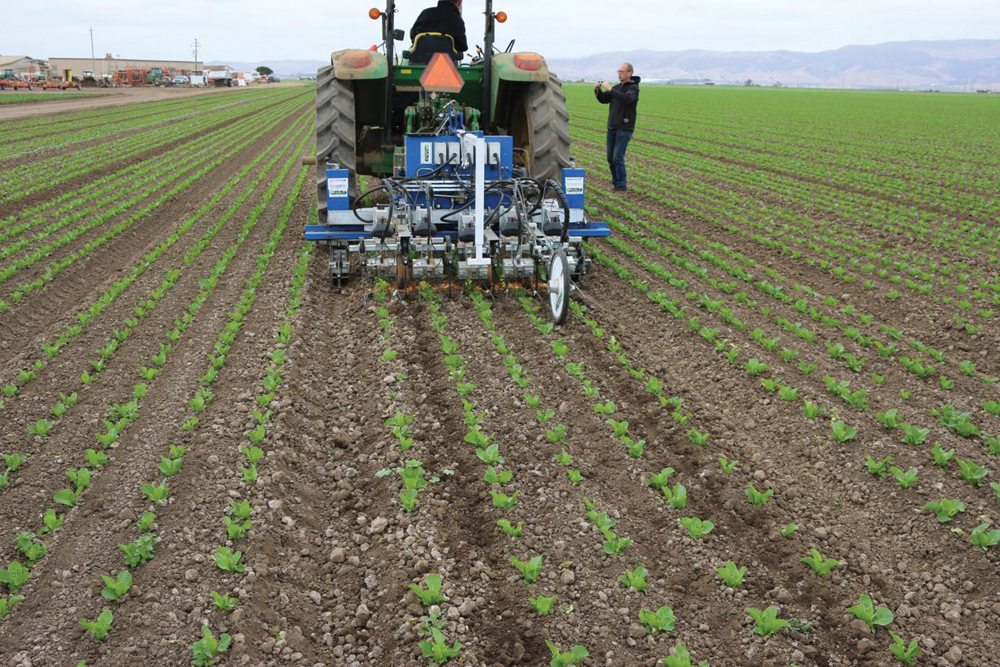Forget about that old hoe — it’s time to go high tech with weed control.
Researchers at the University of California-Davis say robotic weeders are already making headway in high-value vegetable crops, fuelled by a lack of chemical controls and lack of affordable labour.
Steven Fennimore, an extension specialist at the university, pegs the cost of hand-weeding at between US$150 and US$300 an acre.
“I’ve been working with robotic weeders for about 10 years now, and the technology is really just starting to come into commercial use,” Fennimore said. “It’s really an economic incentive to consider them.”
Read Also

Cereal lodging isn’t just a nitrogen problem
Lack of copper in the soil can also lead wheat and other cereal crops to lodge during wet seasons on the Canadian Prairies.
Fennimore works with university scientists and companies to engineer and test the weeders. The weeders utilize tiny blades that pop in and out to uproot weeds without damaging crops. He says that although the technology isn’t perfect, it’s getting better and better.
The weeders are programmed to recognize a pattern and can tell the difference between a plant and the soil. However, they currently have trouble telling the difference between a weed and a crop.
That said, Fennimore explains how some companies are training the machines to tell a lettuce plant from a weed. He’s also working with university engineers on a system to tag the crop plant so the weeders will avoid it.
“The problem with the machines right now is that they are version 1.0, and there’s tremendous room for improvement,” he said.
The robotic weeders currently on the market cost between $120,000 and $175,000.
Fennimore believes robotic weeders are the future of weeding in specialty crops, especially with consumer demand for fewer pesticides.















